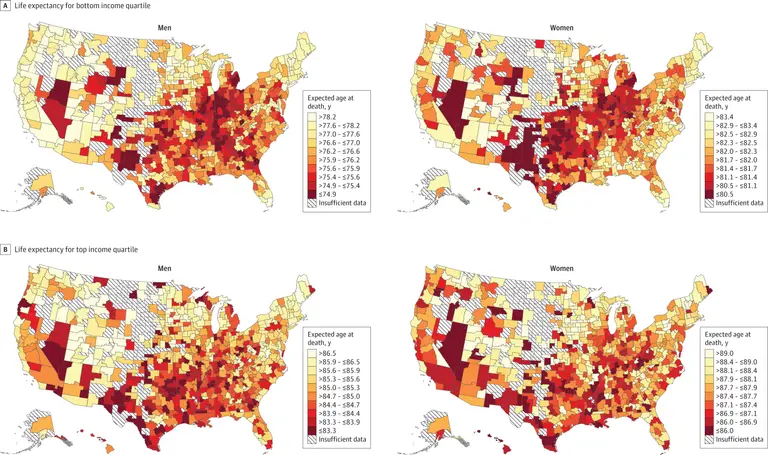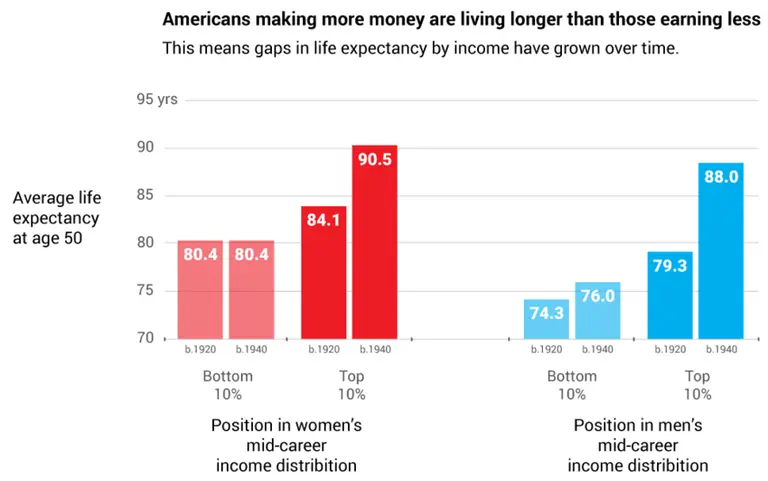April 11, 2016
The New York Times recently took a look at the results of a study published in the Journal of the American Medical Association (JAMA). Using data compiled from anonymous earnings records and death certificates, the results offer some provocative insights into the importance of geography to how long people live–poor people in particular.
There is, as we've already assumed, a longevity gap between the rich (in this study, people with household incomes of over $100,000 per year) and poor (those with incomes less than $28,000). In Manhattan, for example, the average poor person will die about six years before the average rich one. But that gap is about a year and a half smaller than the same income/longevity gap for the United States as a whole. Tulsa and Detroit, for example, were two cities with the lowest levels of life expectancy among the low-income population, with the results already adjusted for differences based on race.
Find out what the numbers look like where you live











